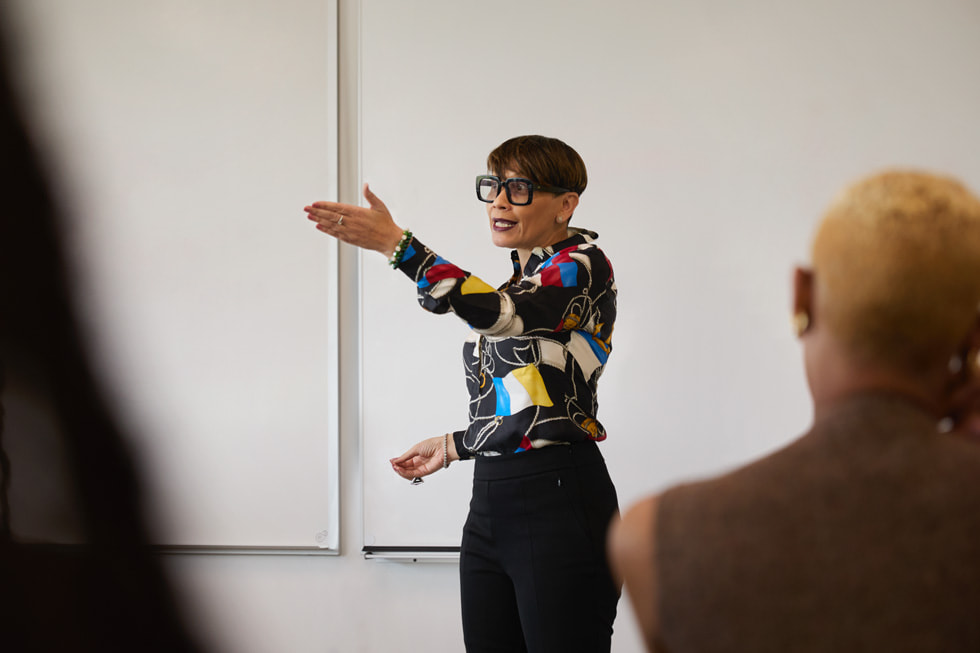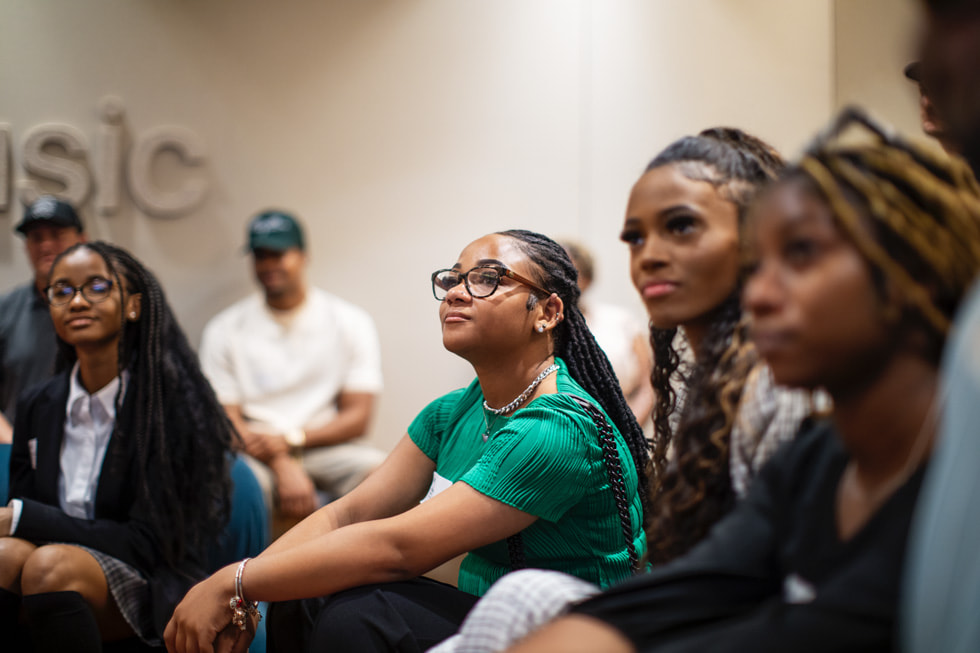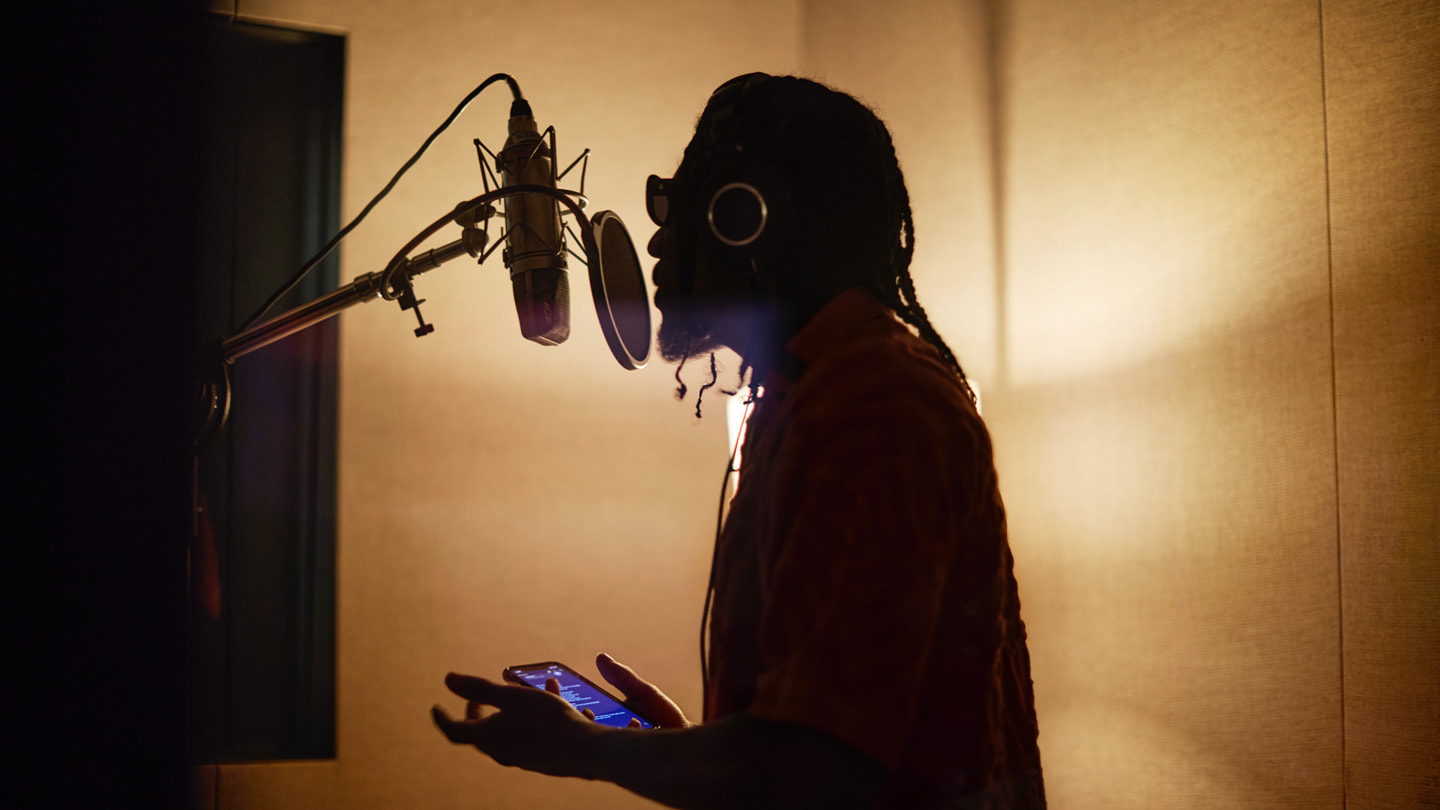apple stories
HBCU students chart their career paths in America’s Music City
Launched in collaboration with Apple through its Racial Equity and Justice Initiative, the year-long PROPEL Center Arts & Entertainment Industry Accelerator is designed to bolster diversity throughout the industry
Empathy and storytelling. Motivational and strategic leadership. These are just a handful of the qualities participants in this year’s PROPEL Center Arts & Entertainment Industry Accelerator identified in their ‘What’s Your Superpower?’ course, designed to empower students to uncover and embrace their authentic selves throughout their careers.
“I think the empathy comes from me being a first child. I’ve always looked out for my younger siblings and cousins and wanted to make sure that they are good,” says Liza Montgomery, a 2024 mass communications graduate from Xavier University of Louisiana. Montgomery was one of more than 100 students from Historically Black Colleges and Universities (HBCUs) who were selected for PROPEL’s creative arts accelerator.
Discovering their superpowers is just one way students are learning to prepare for their careers after graduation. Since February, the students have completed micro-credential courses through the PROPEL Learn app, participated in virtual career panels with professionals at Apple, and attended résumé-writing workshops to build their portfolios and begin preparing for their career journeys.
This summer, 50 participants — including Montgomery — were selected from 19 HBCUs to attend an immersive 10-day experience on the campuses of Tennessee State University in Nashville and Clark Atlanta University in Atlanta. There, they received mentorship from HBCU faculty and industry professionals in both creative and executive roles, and worked side by side with experts at the Apple Music Nashville office.
The accelerator was launched with the PROPEL Center as part of Apple’s US$25 million investment through its Racial Equity and Justice Initiative to help dismantle systemic barriers to opportunity and combat injustices faced by communities of colour. Its curricula was designed to provide new pathways for HBCU students into careers in industries that are notoriously competitive.
“Subject-matter experts are everything along this journey,” says Dr Lisa Herring, the PROPEL Center’s president. “There’s nothing more powerful than for a student to be able to interface with someone who is the expert as they seek to become one. Apple’s belief in being able to not only be a partner, but to be at the table, move from the table, and then be in the field, and then be side by side with our students and instructors — that’s commitment down to the details.”
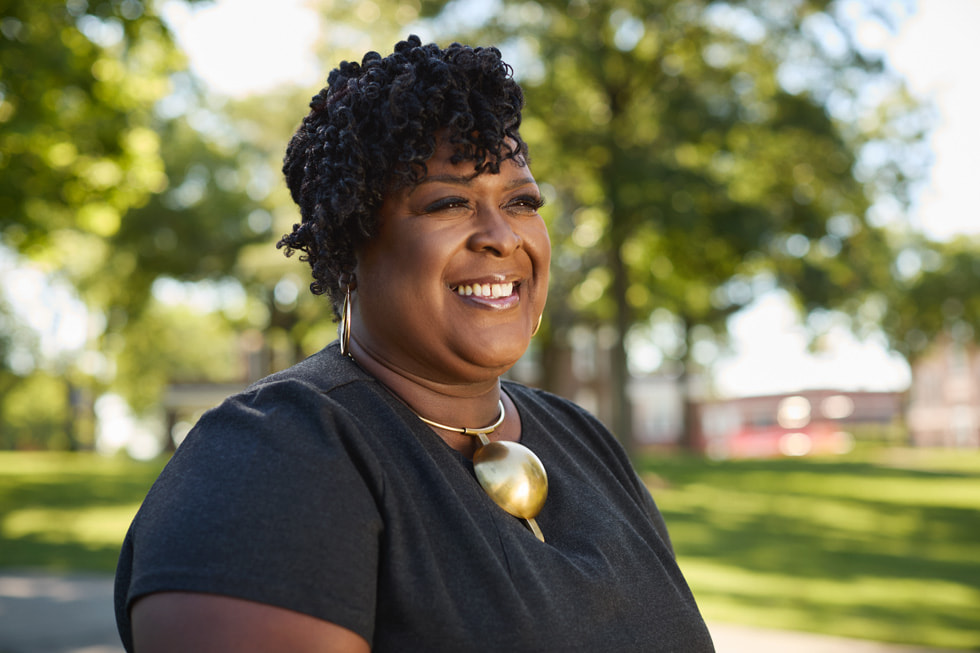
PROPEL’s president, Dr Lisa Herring, says the ability to have a 10-day immersive experience is a game changer: “We really get to see talent on display, and we get to curate and pour into that in ways that also expose students not only to other professionals, but other like-minded peers across HBCU campuses.”
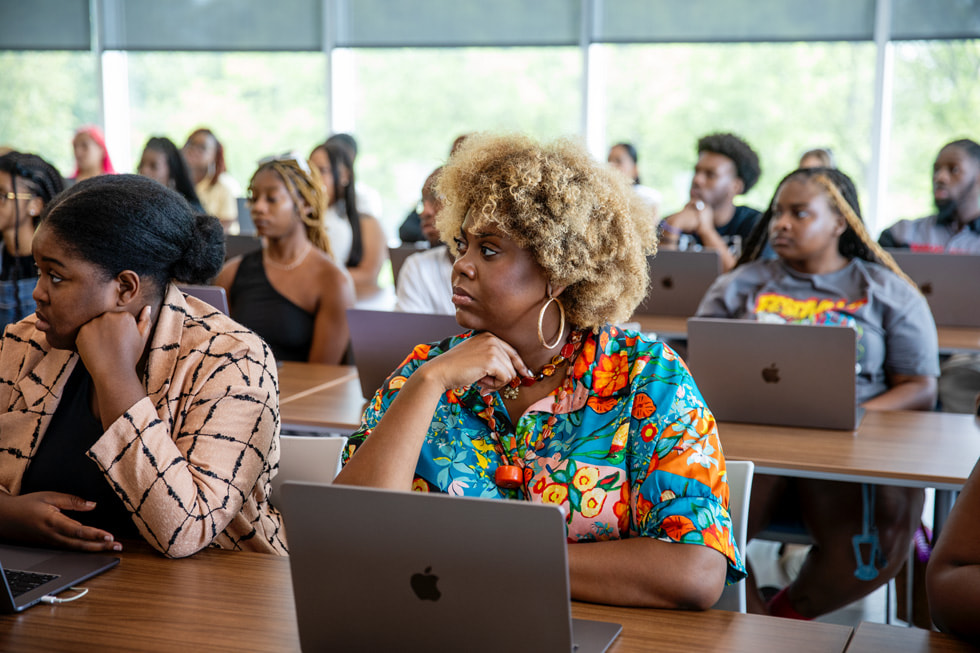
The PROPEL Center is a first-of-its-kind global innovation and learning hub for HBCUs. To support the next generation of diverse leaders, PROPEL provides educational programming and career preparation across a wide range of disciplines, including AI, agricultural technologies, social justice, entertainment, app development, augmented reality, design and the creative arts. Experts from Apple help develop the curricula, and provide ongoing mentorship and internship opportunities.
“When we launched our Racial Equity and Justice Initiative four years ago, we did so with a clear mission to advance equity and create greater access to opportunity for under-resourced communities,” says Lisa Jackson, Apple’s vice president of Environment, Policy and Social Initiatives. “These are persistent and systemic challenges, and we are committed to working with partners, including PROPEL Center, to close the existing gaps and achieve meaningful change. Our collaboration with PROPEL is designed to provide talented students with the technology, resources and expertise they need to become industry leaders, whether they pursue roles in arts and entertainment, technology or beyond.”
In Nashville, students visited the National Museum of African American Music for a fireside chat with Ebro Darden, Apple Music’s global editorial head of Hip Hop and R&B; got hands-on with experts in their fields at the Apple Music Nashville office and Universal Music Group’s East Iris Studios; and participated in an experience with the Apple Downtown Nashville store.
From left to right: Liza Montgomery, a recent graduate of Xavier University of Louisiana, strives to document the stories of people of colour through her art. Here, with her iPad Pro and Apple Pencil, she uses Procreate to design an album cover for her group project.
From top to bottom: Liza Montgomery, a recent graduate of Xavier University of Louisiana, strives to document the stories of people of colour through her art. Here, with her iPad Pro and Apple Pencil, she uses Procreate to design an album cover for her group project.
Accelerator participants also collaborated on projects that speak to this year’s theme, ‘Propelling Preservation’. Through their work, the 10-person teams showcased how Black creatives have contributed to social movements — and how they can ignite a new era that sustains HBCU culture for future generations.
“‘Propelling preservation’ is about documenting the people that haven’t had a voice,” Montgomery says. “What I’ve been trying to do with my art is accurately communicate the voices and experiences that haven’t been included for a very long time. For me, it’s about making sure I’m documenting people of colour’s stories, and what they look like in their most authentic and vibrant states.”
“A lot of times, when people think Black social justice movement, they think negative,” adds Emmanuel Strickland, a Tennessee State University student and emerging R&B singer who is one of Montgomery’s teammates. “We’re trying to flip it to a positive. Our project is about HBCU love and different things that we go through as college students on a daily basis — how we move together as a unit. No matter what HBCU you go to, you’re going to be able to relate.”
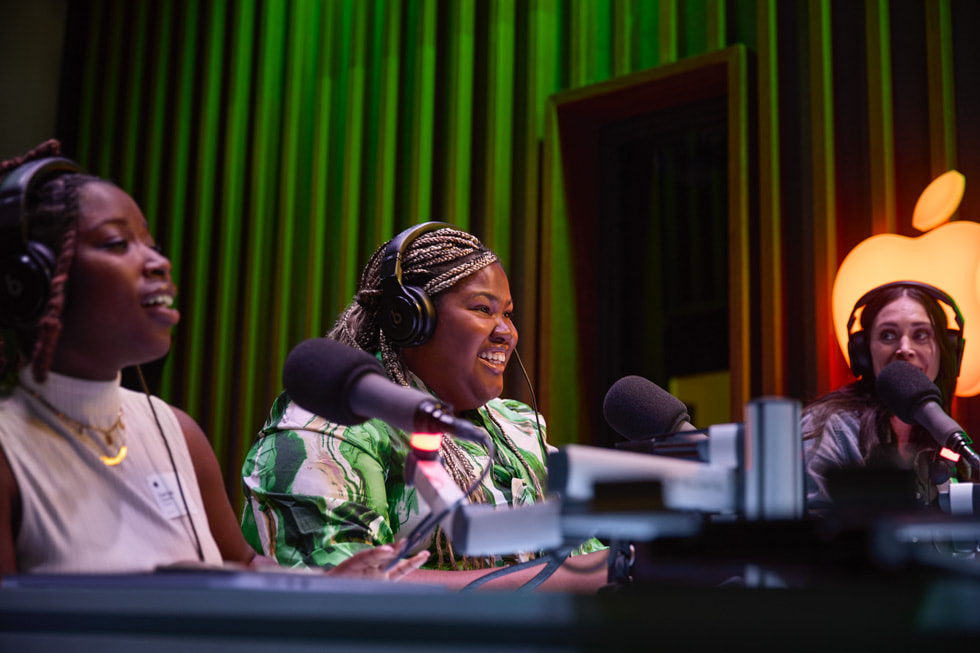
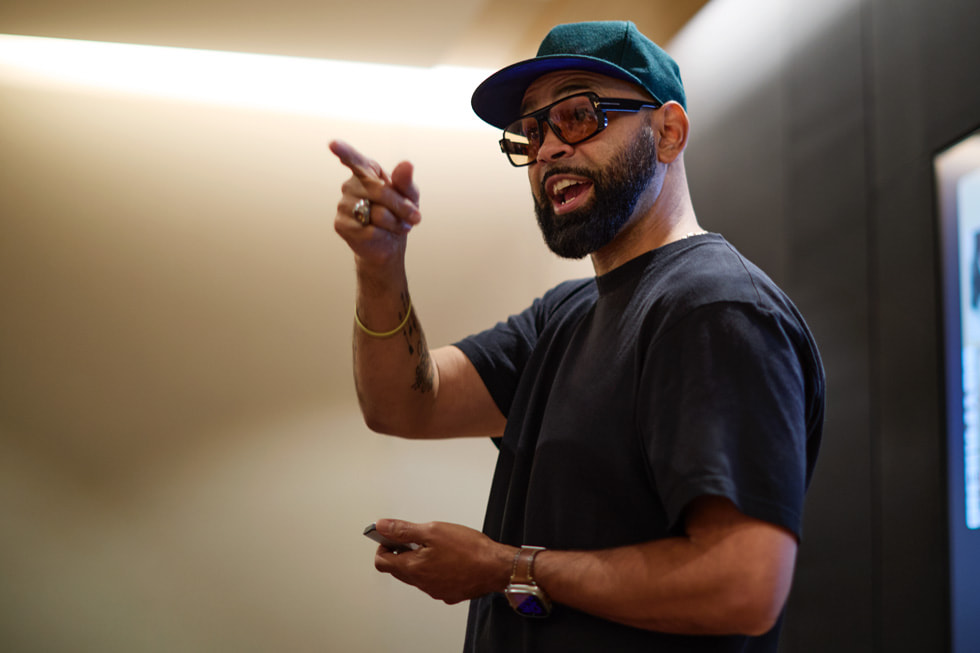
As part of the project, each team was assigned a genre and tasked to record a music single, put together a marketing plan, shoot a visual campaign using iPhone, and pitch their concept to a panel of judges made up of industry professionals.
In her role, Montgomery designed the marketing plan and the cover art for her group’s song. While using Apple Pencil and the Procreate app on her iPad Pro, she was grateful for its speed and the versatility the app’s tools provide.
“The way Procreate and my iPad with Apple Pencil can imitate a traditionally drawn art piece is amazing because it’s not just a flat piece,” she explains. “It has the capacity to show dimension, texture, shiny objects and even animation. Using Procreate really makes the possibilities pretty limitless for digital artworks.”
Growing up, Strickland — who performs under the name ‘Mille Manny’ — was constantly surrounded by music. His home was filled with the sounds of his mother and sisters’ voices belting out tunes from female superstars including Mariah Carey, Selena and even Beyoncé. “Being from Memphis, you’re born with that soul in you,” he says.
As his career takes off, Strickland is always thinking up his next song. When inspiration strikes, he records lyrics and melodies in Voice Memos on his iPhone 13 Pro Max. And at home, his MacBook and Neumann microphone serve as a mini studio as he produces tracks in Pro Tools.
During the accelerator, Strickland, Montgomery and their teammates collaborated with artist, producer, musician and songwriter Fresh Ayr — who provided the beat for their track — and the audio engineering team at UMG East Iris Studios to produce their song in Logic Pro. This level of access and visibility for the students is just one of the benefits of the program.
“The biggest ‘aha’ moment for me would probably be understanding that it’s not what you see on the surface, but what’s underneath,” says Strickland. “The accelerator is enlightening, showing how to do a tour, or this is what’s going on behind the scenes. We’re realising that it’s more than just a couple of people that you can see making things happen.”
“The PROPEL program does a really great job of giving HBCU students a platform to truly show who we are. We are given the opportunity to express ourselves artistically, build invaluable relationships, and have authentic conversations with industry professionals who are in positions that we aspire to be in as we grow throughout our careers,” Montgomery adds.
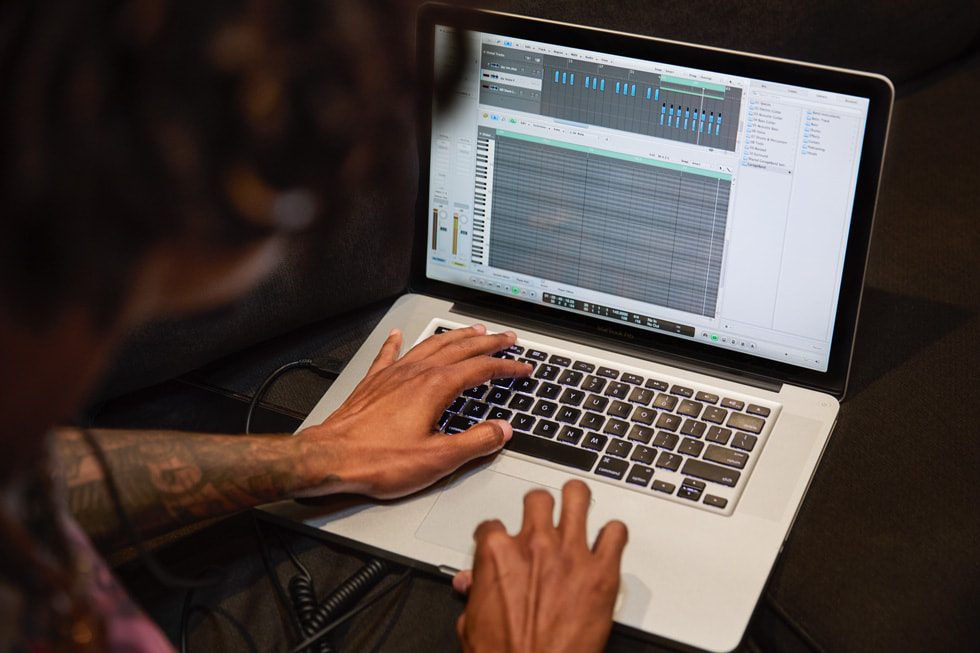
As the aspiring creatives, musicians, and even accountants and lawyers made their way around Nashville during the accelerator, that level of access to industry professionals was invaluable. The students took part in candid conversations about how the industry works, gained deeper insight into unexpected areas with the most opportunities for new talent, and learned from the personal experiences of artists like Kirk Franklin, a world-renowned gospel musician who had to navigate the historically inaccessible industry on his own.
“A lot of the students are coming from various schools and various backgrounds,” says Sylvester Polk, a music engineering mentor at the accelerator who teaches music technology at Bethune-Cookman University, an HBCU in Daytona Beach, Florida. “Some of them have been exposed to a lot already, some of them don’t have any idea. There’s so many fields and so many skills that are required in various areas that it can be open to lots of people. The accelerator has been great for providing the students with a holistic understanding of what the industry is and how it works, and PROPEL has been able to provide an extension to the classroom.”
“It allows us to be in the room. It allows us to be heard. It allows us to have the reach to actually talk to the people who are in the industry that we’re aspiring to be in,” says Strickland. “With this program, there are going to be internships that come out of this. There will be apprenticeships that come out of this. There are going to be real-life connections that people can foster, nurture and potentially really make something shake with.”
Share article
Media
-
Text of this article
-
Images in this article

